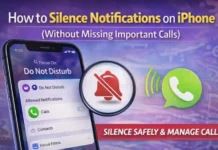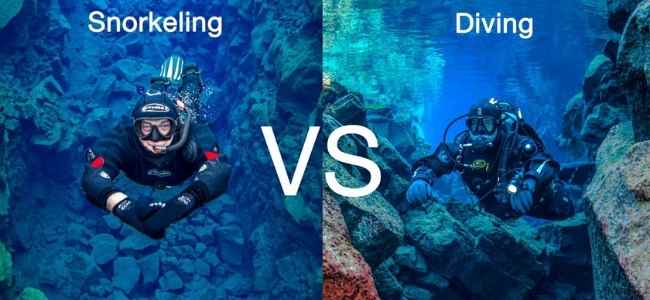A whopping 80 percent of the oceans on earth remain completely unexplored. In stark comparison to this number, only 7 percent of our oceans are protected as designated marine protected areas (MPAs). Why? Because it’s difficult to protect what you don’t know.
This gives you a basic idea of how vast our oceans really are and how much there is to see below the ocean’s surface. But whether you prefer scuba diving vs snorkeling, both pursuits are among the best ways to discover this fascinating unexplored territory.
The question remains — which pursuit allows you to see more? Keep on reading to find out.
Scuba Diving vs. Snorkeling: What’s the Difference?
Most people probably have good general knowledge about the differences between the two activities. But in case you don’t, here’s a quick outline of the differences:
- Snorkeling involves a mask and breathing tube (snorkel) and allows you to swim near the surface of the water while exploring what’s underneath it
- Snorkeling is not suited to diving beneath the water’s surface. It only allows for panoramic or aerial views of the ocean floor
- Scuba diving involves self-contained underwater breathing apparatus (SCUBA). This equipment allows you to breathe normally as you dive beneath the water’s surface
- Scuba diving is totally immersive experience and allows to explore the ocean floor from all angles
So, in summary, the main difference between the two activities is how deep into the ocean you dive. It goes without saying that scuba diving allows you to stay under the water for longer thanks to the breathing apparatus.
You can spend more time exploring marine life, coral reefs, wrecks, and more. Check out Scubaworld.com.au for some of the best examples of scuba diving tours.
Deciding Factors to Help You Choose
If you’re heading on vacation soon and can’t decide between snorkeling or scuba diving, there are a few determining factors that should help you make your decision.
Scuba Diving Requirements and Benefits
First of all, you need to be officially certified to scuba dive. This means you’ll have to undergo scuba dive training to learn how to use the apparatus and communicate underwater. You’ll need to have a clean bill of health and relatively good fitness levels.
Not only this, but you have to ensure that you maintain your scuba diving certifications. Safety protocols change and so does equipment, so you’ll need to be up-to-date with all of this.
All of the above aside, one of the key benefits of scuba diving is that you can explore beneath the ocean’s surface in great detail. If you have a fascination for the ocean and what it houses, a scuba diving certification is worth the time and money.
Scuba diving allows you to feel like you are not only watching the underwater world go by, but you are part of it.
Snorkeling Requirements and Benefits
Snorkeling is a much more simplified way to explore below the ocean’s surface. It does not require any form of certification and it’s suitable for just about anyone — whatever your fitness levels.
It’s also a cheaper way to enjoy the ocean and what it has to offer. However, it does not offer the same immersive experience as scuba diving. As you float at surface level, that’s as far as you can go in terms of depth.
Yes, you can dive down further if you wish, but you won’t have the breathing capabilities that scuba diving offers. This means you won’t be able to spend as much time under the water, exploring coral reefs, marine life, wrecks, and more.
A World of Untapped Knowledge Awaits
When it comes down to deciding between scuba diving vs. snorkeling, you’ll have to think about your capabilities and your budget, first. Can you afford a scuba diving course while on vacation? Are you fit enough? Or would the relaxed nature of snorkeling suit your vacation better?
If you found this blog helpful, don’t miss out on an untapped realm of general knowledge, right at your fingertips. Explore the rest of this site for more!























